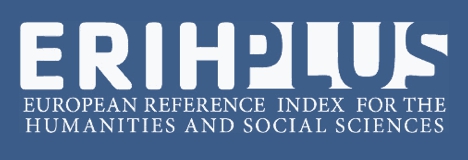A participatory experience in environmental education programs in environmental licensing: the implementation of pea barra longa (mg)
Abstract
This article is about the implantation of a methodological proposal of environmental education (EE) within the process of environmental licensing. It was intended to engender methodological innovations related to elaboration, execution and monitoring processes of EE programmes. This proposal was accomplished by GEA-UFJF in the county of Barra Longa, MG. The educational actions happened in four phases: 1ª) recognition-approximation with local reality; 2ª) participatory planning-diagnosis; 3ª) diffusion / realization of educational / formative processes; 4ª) community mobilization. As outstanding results of experience was contacted an initiative of the participating subjects in structure a Collective aiming the creation of a community association. About the proposed methodological innovations there was a huge investment in the formation of the local dynamizers to face the socio-environmental problems.
References
______. Pedagogia da autonomia: saberes necessários para a prática educativa. São Paulo: Paz e Terra, 1996.
FURNAS. P&D – ANNEL/FURNAS. Educação ambiental no processo de licenciamento ambiental. Diretrizes teórico-metodológicas de implantação e acompanhamento de programas de educação ambiental. Rio de Janeiro: Furnas-Centrais Elétricas S.A, 2015.
GUIMARÃES, M. Educação Ambiental e a Gestão para a Sustentabilidade. In: J. E. SANTOS & M. SATO (orgs.) A Contribuição da Educação Ambiental à Esperança de Pandora. São Carlos/SP: Rima Editora, 2001.
______. A Formação de Educadores Ambientais. Campinas: Papirus, 2004.
LOUREIRO, C.F.B. Educação ambiental no licenciamento ambiental: cenário atual, caracterização, pressupostos e especificidade. Rio de Janeiro: FURNAS, 2012. (Texto impresso).
Keywords

This work is licensed under a Creative Commons Attribution-NonCommercial 4.0 International License.
Policy Proposal for Free Access Journals
Authors who publish in this journal agree to the following terms:
a. Authors retain the copyright and grant the journal the right of first publication, with the work simultaneously licensed under the Creative Commons Attribution License which allows the sharing of the work with acknowledgment of the authorship of the work and initial publication in this journal.
b. Authors are authorized to take additional contracts separately, for non-exclusive distribution of the version of the work published in this journal (eg publish in institutional repository or as a book chapter), with acknowledgment of authorship and initial publication in this journal.
c. Authors are allowed and encouraged to publish and distribute their work online (eg in institutional repositories or on their personal page) at any point before or during the editorial process, as this can generate productive changes, as well as increase the impact and The citation of published work (See The Effect of Free Access).





















